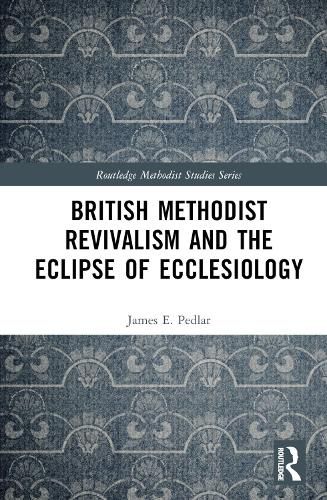Readings Newsletter
Become a Readings Member to make your shopping experience even easier.
Sign in or sign up for free!
You’re not far away from qualifying for FREE standard shipping within Australia
You’ve qualified for FREE standard shipping within Australia
The cart is loading…






Revivalism was one of the main causes of division in nineteenth-century British Methodism, but the role of revivalist theology in these splits has received scant scholarly attention. In this book, James E. Pedlar demonstrates how the revivalist variant of Methodist spirituality and theology empowered its adherents and helped foster new movements, even as it undermined the Spirit's work through the structures of the church. Beginning with an examination of unresolved issues in John Wesley's ecclesiology, Pedlar identifies a trend of increasing marginalisation of the church among revivalists, via an examination of three key figures: Hugh Bourne (1772-1852), James Caughey (1810-1891), and William Booth (1860-1932). He concludes by examining the more catholic and irenic theology of Samuel Chadwick (1860-1932), the leading Methodist revivalist of the early twentieth century who became a strong advocate of Methodist Union. Pedlar shows that these theological differences must be considered, alongside social and political factors, in any well-rounded assessment of the division and eventual reunification of British Methodism.
$9.00 standard shipping within Australia
FREE standard shipping within Australia for orders over $100.00
Express & International shipping calculated at checkout
Revivalism was one of the main causes of division in nineteenth-century British Methodism, but the role of revivalist theology in these splits has received scant scholarly attention. In this book, James E. Pedlar demonstrates how the revivalist variant of Methodist spirituality and theology empowered its adherents and helped foster new movements, even as it undermined the Spirit's work through the structures of the church. Beginning with an examination of unresolved issues in John Wesley's ecclesiology, Pedlar identifies a trend of increasing marginalisation of the church among revivalists, via an examination of three key figures: Hugh Bourne (1772-1852), James Caughey (1810-1891), and William Booth (1860-1932). He concludes by examining the more catholic and irenic theology of Samuel Chadwick (1860-1932), the leading Methodist revivalist of the early twentieth century who became a strong advocate of Methodist Union. Pedlar shows that these theological differences must be considered, alongside social and political factors, in any well-rounded assessment of the division and eventual reunification of British Methodism.